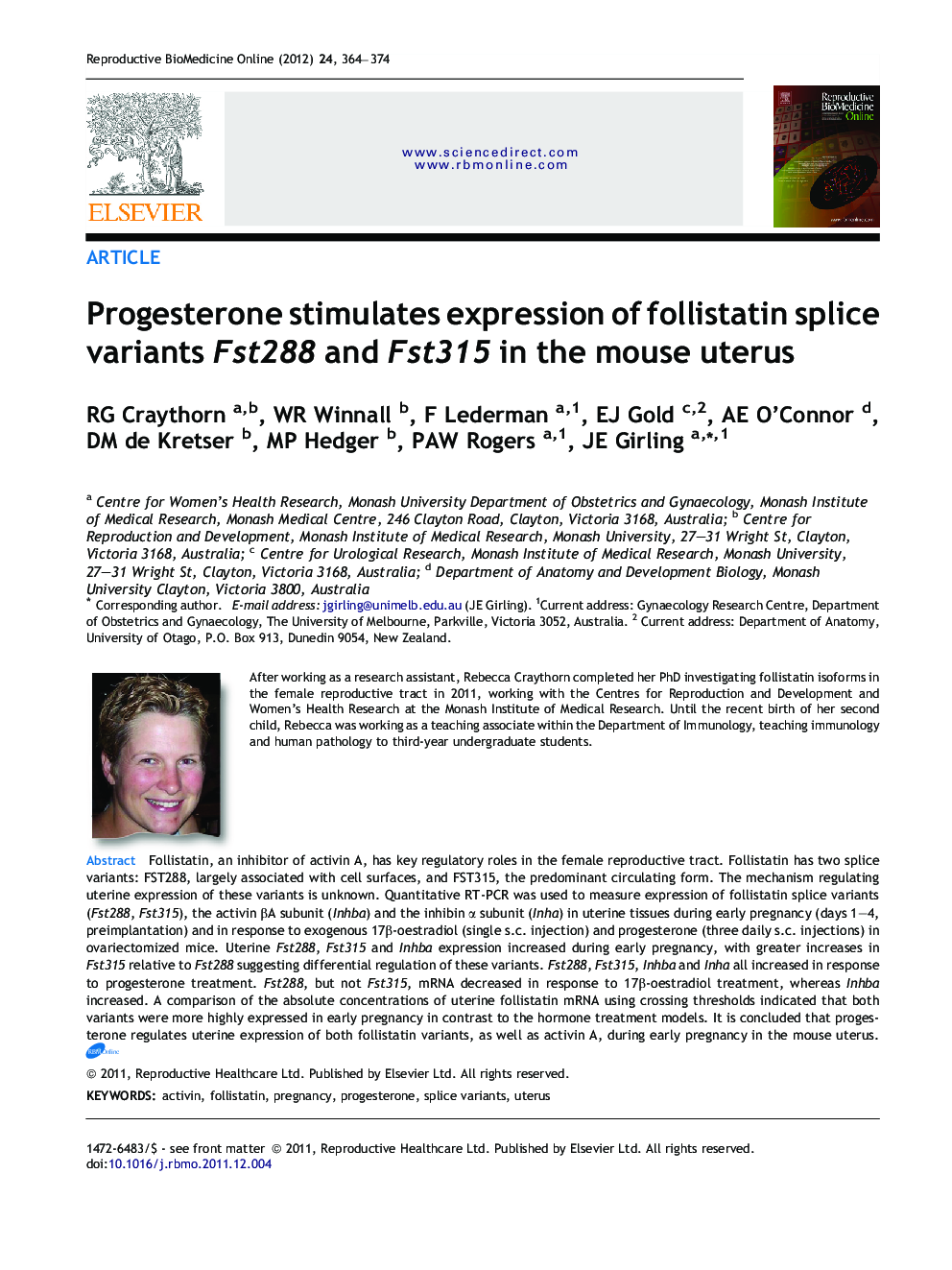| Article ID | Journal | Published Year | Pages | File Type |
|---|---|---|---|---|
| 3971059 | Reproductive BioMedicine Online | 2012 | 11 Pages |
Follistatin, an inhibitor of activin A, has key regulatory roles in the female reproductive tract. Follistatin has two splice variants: FST288, largely associated with cell surfaces, and FST315, the predominant circulating form. The mechanism regulating uterine expression of these variants is unknown. Quantitative RT-PCR was used to measure expression of follistatin splice variants (Fst288, Fst315), the activin βA subunit (Inhba) and the inhibin α subunit (Inha) in uterine tissues during early pregnancy (days 1–4, preimplantation) and in response to exogenous 17β-oestradiol (single s.c. injection) and progesterone (three daily s.c. injections) in ovariectomized mice. Uterine Fst288, Fst315 and Inhba expression increased during early pregnancy, with greater increases in Fst315 relative to Fst288 suggesting differential regulation of these variants. Fst288, Fst315, Inhba and Inha all increased in response to progesterone treatment. Fst288, but not Fst315, mRNA decreased in response to 17β-oestradiol treatment, whereas Inhba increased. A comparison of the absolute concentrations of uterine follistatin mRNA using crossing thresholds indicated that both variants were more highly expressed in early pregnancy in contrast to the hormone treatment models. It is concluded that progesterone regulates uterine expression of both follistatin variants, as well as activin A, during early pregnancy in the mouse uterus.Follistatin and activin are proteins with important functions in female reproduction. There are two forms of follistatin (FST288 and FST315), which interact with activin in different ways and subsequently may have different functions. We are interested in the function of these two forms of follistatin in the uterus. In this study, we examined how the expression of the two follistatin variants and activin changed in the uterus during early pregnancy in mice, as well as in response to the female hormones oestrogen and progesterone. We saw an increase in the expression of the genes for FST288, FST315 and activin in the uterus during early pregnancy. We also saw an increase in these proteins in the mouse uterus in response to progesterone treatment. We concluded that the hormone progesterone regulates expression of both follistatin variants, as well as activin, during early pregnancy in the mouse uterus.
